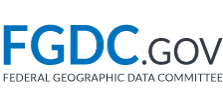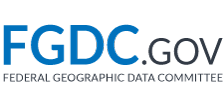PROJECT TITLE
Address Content Standard.
SUBMITTING ORGANIZATION
FGDC Subcommittee on Cultural and Demographic Data (SCDD).
OBJECTIVES
To provide consistency in the maintenance and exchange of address data and enhance its useability.
SCOPE
The Address Content Standard (the Standard) will be an FGDC data content standard. The Standard will provide semantic definitions for components determined by the participants to be integral to the creation, maintenance, sharing, useability, and exchange of addresses and/or address lists. Within this scope, addresses are broadly defined as locators to places where a person or organization may reside or receive communications, but excluding electronic communications. An address list consists of one or more addresses. The Standard will additionally define an entity-relationship model for address data.
The semantic definitions and the entity-relationship model are initially focused on the address schema found within the United States and its territories with consideration given to making the model applicable globally.
Although the proposed Standard is national in scope, there will be an attempt to harmonize with the international approach.
JUSTIFICATION
Addresses are a key part of most data sets involving people and organizations as well as their activities, and many agencies maintain data keyed to addresses. There is a proliferation of agency address standards which have been developed in response to specific agency needs. By their very nature, these existing agency address standards present conflicting guidelines for creating and maintaining addresses and address lists. Existing agency address standards do not provide common semantic definitions which may be used by the myriad of organizations wishing to successfully exchange address data. Given the enormous expense of collecting, maintaining, and using address data, there is a need for an FGDC address content standard to improve the sharing and exchange of address data amongst Federal, state, and local governments and other interested participants. The Standard meets the general FGDC responsibility stated in OMB Circular A-119 for developing standards for implementing the NSDI, in consultation and cooperation with state, local, and tribal governments, private and academic sectors and, where feasible, the international community. It additionally meets the responsibilities stated in OMB Circular No. A-16 to develop standards through the FGDC to ensure that the spatial data produced by all Federal agencies is compatible.
The Development of a National Digital Geospatial Data Framework identifies addresses as an element of framework data. Framework transportation data includes the centerlines of roads and identifies the attributes roads will have as identification code, functional class, name, and street addresses. The Standard will assist in developing this aspect of framework.
The development of the Standard is particularly timely in that Executive Order 12906 states the initial transportation, hydrology, and boundary elements of framework should be completed by January 1998 in order to support the decennial census of 2000. As Chair of the SCDD, the Department of Commerce (DoC), Bureau of the Census, has identified the development of the Standard as a means of furthering this goal.
BENEFITS
The Standard will benefit Federal, state and local governments and other participants interested in sharing and exchanging address data. Potential contributors to and users of framework data also will benefit.
APPROACH
All members of the SCDD will participate in developing the Standard. Members representing agencies having or developing agency address standards (DoC Bureau of the Census, the Department of Housing and Urban Development, and the Environmental Protection Agency) have expressed interest in actively developing the Standard and providing experts from within their agencies.
The SCDD plans on drawing from existing standards, which include an International Organization for Standardization (ISO) standard at the international level and various existing agency address standards or guidelines. The SCDD will contact non-FGDC agencies and organizations (such as the U.S. Postal Service) known to have an interest in addresses.
RELATED STANDARDS
The following address standards or guidelines have been
identified to date:
Address Standardizer Documentation (Internal), DOC, Bureau of the Census,
Geography Division
Address Quality Standards (draft), Department of Housing and Urban
Development
Address Standard (ISO 11180), ISO
Cadastral Data Content Standard for the National Spatial Data Infrastructure
(proposed), FGDC Subcommittee on Cadastral Data
Postal Addressing Standards (Publication 28), U.S. Postal Service
SCHEDULE
Work will begin on the Standard as soon as the proposal is approved by the FGDC's Standards Working Group (SWG). A working draft will be completed within nine months of the start date. The working draft will be forwarded to the SWG for consideration for public review.
RESOURCES
The SCDD had adequate resources to accomplish most of the development and initial review processing of the Standard. However, additional resources will be needed to handle the full review and comment activity during non-Federal sector public review.
POTENTIAL PARTICIPANTS
Primary participants will be members of the SCDD. Three member agencies have produced some form of agency address standards; one agency is beginning to develop an agency address standard. Input from large address producers/users will be solicited (for example, the U.S. Postal Service).
TARGET AUTHORIZATION BODY
The SCDD is developing an FGDC data content standard. The SCDD may consider pursuing (at a later date) the development of the Standard as an American National Standards Institute (ANSI) Standard within the ANSI's technical committee for GIS, X3L1. The FGDC would serve as the Target Authorization Body until the Standard became an ANSI standard.

